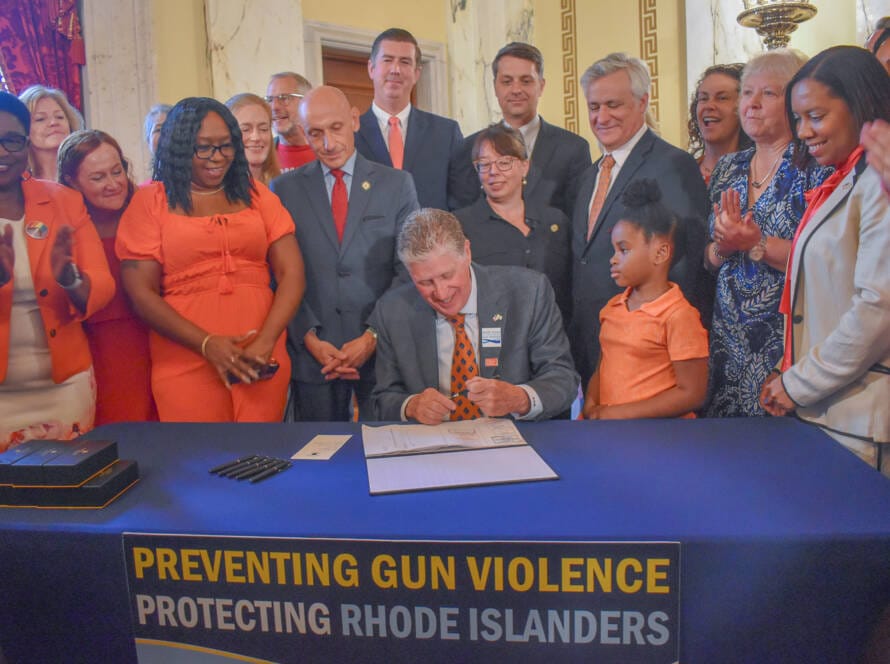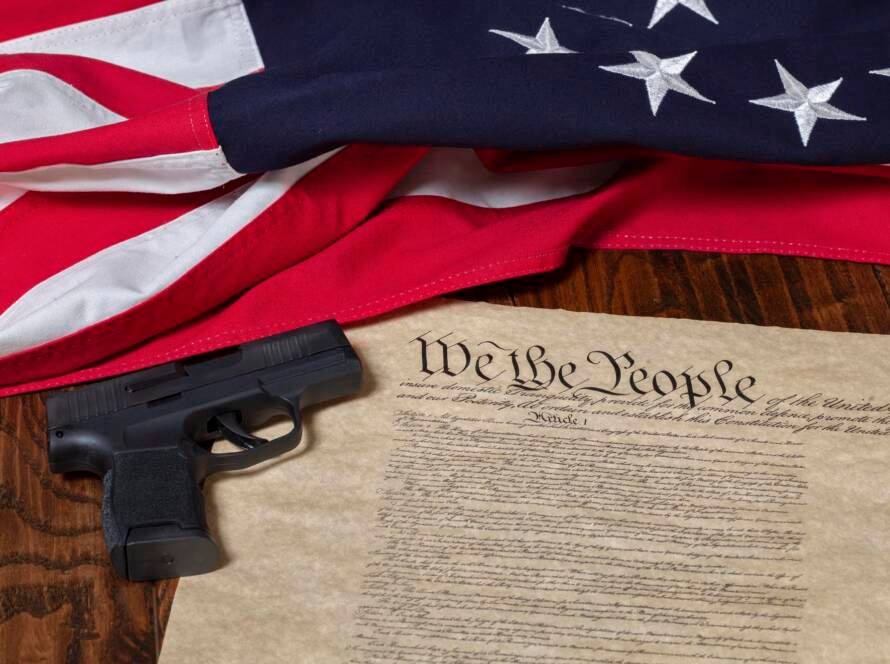Rule Seeks To Implement Provisions of the Bipartisan Safer Communities Act and Provide Clarity on Who Must Obtain a License and Run Background Checks
WASHINGTON – The Justice Department today announced it has submitted to the Federal Register the “Engaged in the Business” Final Rule, which makes clear the circumstances in which a person is “engaged in the business” of dealing in firearms and thus required to obtain a federal firearms license, in order to increase compliance with the federal background check requirement for firearm sales by federal firearms licensees.
“Under this regulation, it will not matter if guns are sold on the internet, at a gun show, or at a brick-and-mortar store: if you sell guns predominantly to earn a profit, you must be licensed, and you must conduct background checks,” said Attorney General Merrick B. Garland. “This regulation is a historic step in the Justice Department’s fight against gun violence. It will save lives.”
“The Bipartisan Safer Communities Act enhanced background checks and closed loopholes, including by redefining when a person is ‘engaged in the business’ of dealing in firearms. Today’s rule clarifying application of that definition will save lives by requiring all those in the business of selling guns to get a federal license and run background checks — thus keeping guns out of the hands of violent criminals,” said Deputy Attorney General Lisa Monaco. “I applaud the hard work of ATF in drafting this rule and reviewing the hundreds of thousands of public comments, which overwhelmingly favored the rule announced today. Because of that work, our communities will be safer.”
“This is about protecting the lives of innocent, law-abiding Americans as well as the rule of law. There is a large and growing black market of guns that are being sold by people who are in the business of dealing and are doing it without a license; and therefore, they are not running background checks the way the law requires. And it is fueling violence,” said Director Steven Dettelbach of the Bureau of Alcohol, Tobacco, Firearms and Explosives (ATF). “Today’s Final Rule is about ensuring compliance with an important area of the existing law where we all know, the data show, and we can clearly see that a whole group of folks are openly flouting that law. That leads to not just unfair but, in this case, dangerous consequences.”
The Bipartisan Safer Communities Act (BSCA), enacted June 25, 2022, expanded the definition of engaging in the business of firearms dealing to cover all persons who devote time, attention, and labor to dealing in firearms as a regular course of trade or business to predominately earn a profit through the repetitive purchase and sale of firearms. On March 14, 2023, President Biden issued Executive Order 14092, which, among other things, directs the Attorney General to develop and implement a plan to clarify the definition of who is engaged in the business of dealing in firearms and thus required to obtain a federal firearms license. The Final Rule conforms the ATF regulations to the new BSCA definition and further clarifies the conduct that presumptively requires a license under that revised definition, among other things.
Federally licensed firearms dealers are critical to federal, state, local, Tribal, and territorial law enforcement in our shared goal of promoting public safety. Licensees submit background checks on potential purchasers to the FBI’s National Instant Criminal Background Check System, which helps to keep firearms out of the hands of prohibited persons. Further, licensees keep records of sales transactions to help ensure that when a gun is used in a crime and recovered by law enforcement it can be traced back to the first retail purchaser; they help identify and prevent straw purchasers from buying firearms on behalf of prohibited persons and criminals; and they facilitate safe storage of firearms by providing child-safety locks with every transferred handgun and offer customers other secure gun storage options. Unlicensed dealing, however, undermines these public-safety features — which is why Congress has long prohibited engaging in the business of dealing in firearms without the required license.
To increase compliance with the statutes Congress has enacted, the Final Rule identifies conduct that is presumed to require a federal firearms license. And, in addition to implementing the revised statutory definition discussed above, the Final Rule clarifies the circumstances in which a license is — or is not — required by, among other things, adding a definition of “personal firearms collection” to ensure that genuine hobbyists and collectors may enhance or liquidate their collections without fear of violating the law. The Final Rule also provides clarity as to what licensees must do with their inventory when they go out of business.
The Final Rule goes into effect 30 days after the date of publication in the Federal Register.
On Sept. 8, 2023, the Justice Department published a notice of proposed rulemaking, and during the 90-day open comment period, ATF received nearly 388,000 comments.
The final rule, as submitted to the Federal Register, can be viewed here.
Please note: This is the text of the Engaged in the Business Final Rule as signed by the Attorney General, but the official version of the Final Rule will be as it is published in the Federal Register.
Learn more about the rulemaking process here.
###


